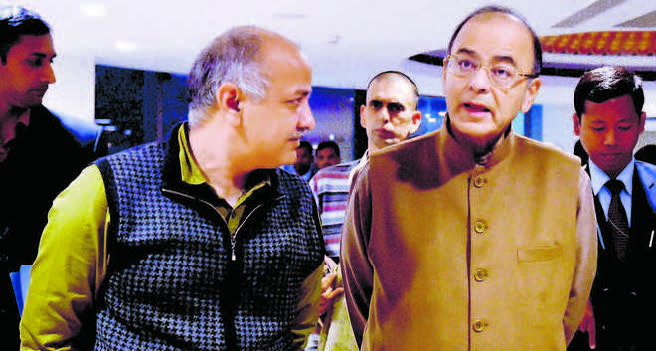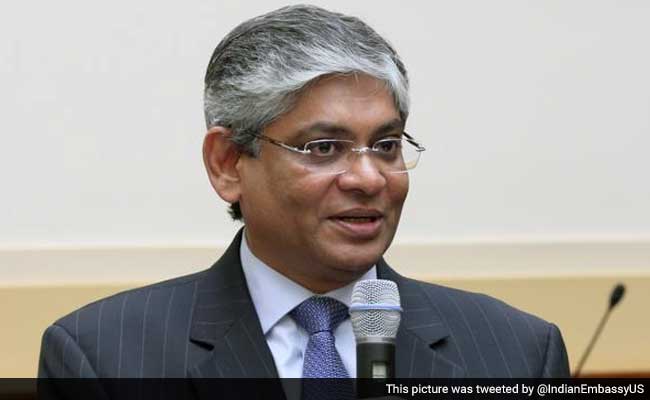
Photo courtesy of PTI
As expected, the latest Goods and Services Tax (GST) Council meet, headed by the Union Finance Minister Arun Jaitley and with state finance ministers as members, could not arrive at any policy decision as far as the dual control of assessees is concerned. Consequently, the switchover to a single GST, subsuming almost all other commodity taxes will miss the stipulated date of its implementation, April 1, 2017.
The Union Finance Minister has now set September 16 as the new deadline. For the first time, a tax would be placed in the Concurrent list, which our Constitution makers meticulously avoided so as to ensure smooth Centre-state financial relations. One should go slow in view of the turmoil created by the demonetization drive. Jaitley’s contention that GST must be implemented before September 16 is not convincing. With the consent of states, the implementation could be postponed. The adoption of VAT took nearly 30 years, though it did not have any implications for our federal set-up. It simply replaced state sales tax by state VAT and central excise duty by Cenvat.
The chaos created by the demonetization drive has shaken the confidence of some states. After GST, they consider it the second blow to states’ autonomy, even though demonetization and the GST regime are aimed at ensuring transparent transactions. GST will neutralize the ill-effects of demonetization like fall in demand, market shrinkage and unemployment by extending market frontiers.
As GST ensures that tax credit is given to producers/ sellers for the taxes already paid, specialization and efficiency in production will be promoted. Producers and traders will get tax credit even on inter- state movement of goods and services. India will emerge as one common national market, with a seamless flow of goods and services across the country. There will be no tax on tax, so production and distribution of goods would become less costly, thereby boosting consumption and investment. Producers will be induced to invest in logistics and building warehouses and inventories, giving a fillip to ease of doing business. Implementing GST should not be viewed as a matter of prestige by the states or the Centre and both should adopt a pragmatic approach.
The most significant impact of GST will be on extending the volume of trade. A National Council of Applied Economic Research (NCAER) study has evaluated the possible impact of GST on India’s international trade. It has been observed that, “The differential multiple tax regimes across sectors of production are leading to distortions in the allocation of resources as well as production inefficiencies. Complete offsets of taxes are not being provided to exports, thus affecting their competitiveness”. The study has estimated that “implementation of a comprehensive GST across goods and services will enhance the nation’s Gross Domestic Product (GDP) by between 0.9 and 1.7 per cent”. Boosting trade, both internal and external, with forward and backward linkages may lift the GDP by 1-2 per cent. Of course, the organized sector may gain at the cost of the unorganized sector, yet the conversion of the informal sector into the formal is the prerequisite for reducing poverty and inequalities. Demonetization too has induced the informal sector to convert into the formal sector.





Be the first to comment